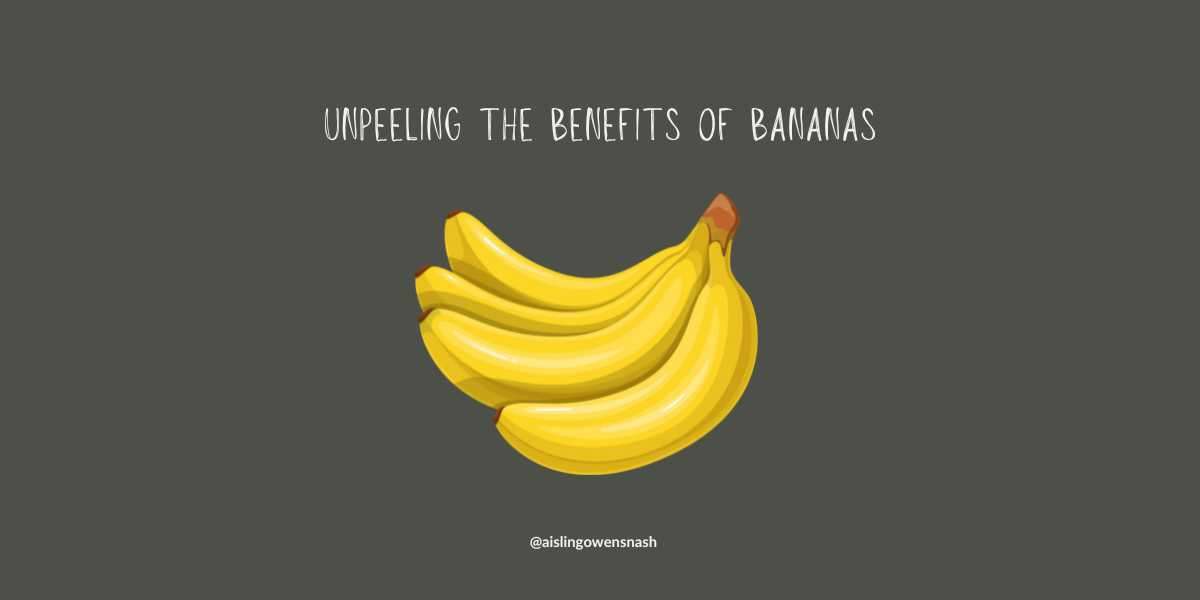Bananas: Unpeeling the Benefits
Bananas are not just a staple in fruit bowls around the world; they're a powerhouse of nutrition, wrapped in their own convenient, biodegradable packaging. As one of the most consumed fruits globally, bananas hold a special place in our diets and hearts. Let's take a look at some benefits of bananas, their impact on blood sugar levels, and their ecological footprint.
A Potassium Powerhouse with a Balanced Impact on Blood Sugar
Bananas are renowned for their high potassium content, with a medium-sized banana containing about 422 milligrams of potassium. This essential mineral is vital for heart health, regulating blood pressure, and ensuring proper muscle and nerve function. While bananas are a source of carbohydrates and natural sugars, they have a moderate glycemic index (GI) of around 51 for a ripe banana, which means they have a balanced impact on blood sugar levels. The presence of dietary fibre in bananas also helps to slow the absorption of sugar into the bloodstream, preventing spikes in blood glucose. However, those monitoring their blood sugar levels, such as individuals with diabetes, should consider the ripeness and portion size of bananas as part of their overall dietary management. The more green or bright yellow the better for lower impact, the more specked or ripened (brown) the higher the sugar content.
Rich in Nutrients and Mood-Enhancing Properties
Beyond their potassium content, bananas offer vitamins C, B6, manganese, and dietary fibre. They're a natural energy booster, favoured by athletes for their quick-release carbohydrates and sugars. Bananas may also enhance mood and promote better sleep, attributed to tryptophan and magnesium, which aid in serotonin production and relaxation, respectively.
Ecological Impact: A Double-Edged Sword
While bananas come in their eco-friendly packaging and are grown in natural, biodiverse environments, their mass production and global distribution raise environmental concerns. Large-scale banana plantations can lead to deforestation, loss of biodiversity, and soil depletion if not managed sustainably. Moreover, the carbon footprint associated with transporting bananas across the world to consumers cannot be ignored. However, choosing bananas from organic and fair-trade farms can mitigate some of these environmental impacts. Consumers have the power to support sustainable practices by being mindful of the source of their bananas.
Versatile in Diet, Mindful of Health and Planet
Bananas’ versatility in culinary uses ranges from smoothies and baked goods to savoury dishes. While they are a nutrient-dense choice supporting heart health, digestion, and energy levels, mindful consumption considering their ripeness and ecological footprint enhances their benefit to health and the planet alike.
Something to try: Try Plantain - from the banana family when ‘green’ they make great savoury snacks, when ripe they can be sliced and fried on low heat in coconut oil for sweet veg alongside fish or white meat. They are a ‘meatier’ larger version of the banana.
Bananas are much more than a convenient snack; they're a nutrient-dense fruit supporting physical health, emotional well-being, and, with mindful choices, environmental sustainability. Their moderate impact on blood sugar and ecological considerations make bananas a complex, yet beneficial, fruit worth including in a balanced diet. Maybe be more mindful of the volume of bananas you purchase to reduce your impact on the environment.
Aisling x








